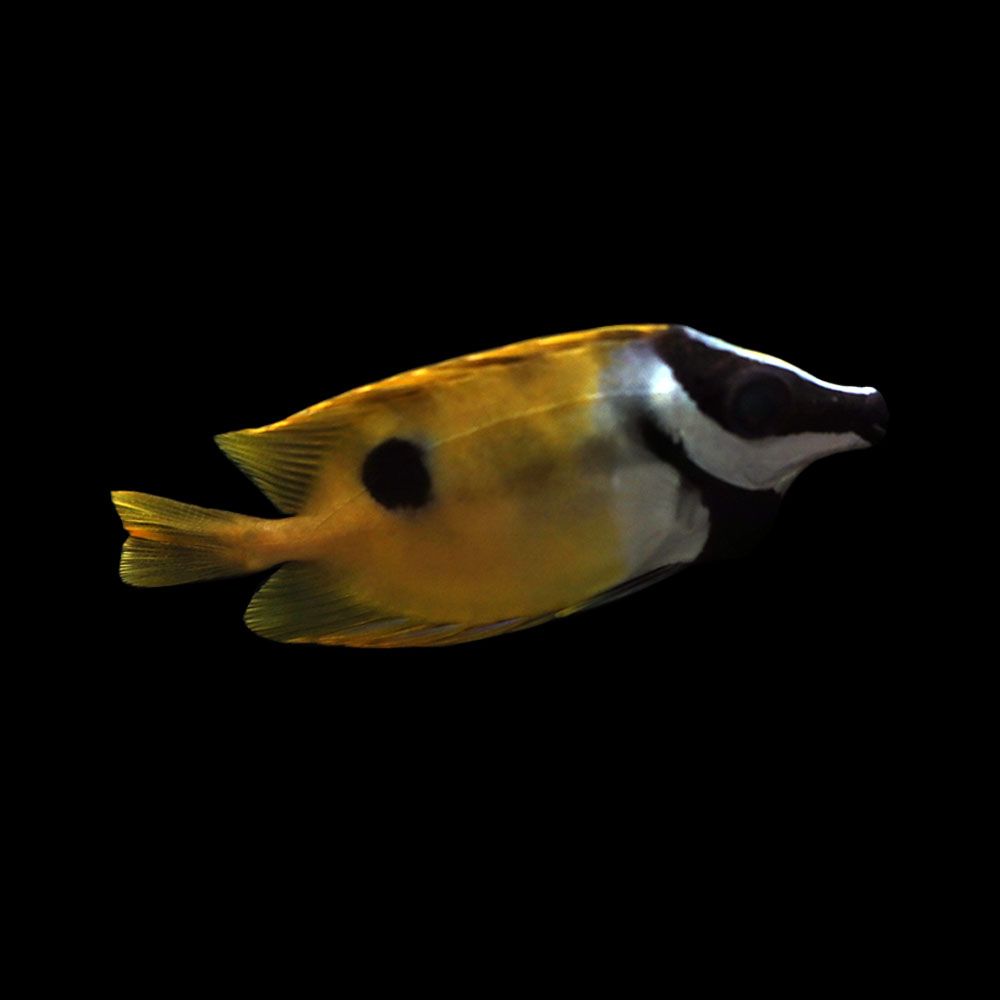ONLINE STORE MINI
Scroll down for a sneak peek at our online store. For full functionality and experience, click the button below to browse the full online store!!
One Spot Foxface Rabbitfish (Siganus unimaculatus)
One Spot Foxface Rabbitfish (Siganus unimaculatus)
Description:
Overview: The One Spot Foxface Rabbitfish, also known as the Blotched Foxface or the One Spot Rabbitfish, is a captivating and hardy species that adds vibrant color and unique behavior to any saltwater aquarium. Known for its striking appearance and beneficial algae-eating habits, the One Spot Foxface is an excellent choice for both novice and experienced aquarists.
Appearance: The One Spot Foxface Rabbitfish is visually stunning, featuring a bright yellow body with a distinctive black spot near the dorsal fin. The head and front part of the body are marked with intricate black and white patterns, creating a striking contrast. This vibrant coloration makes them a standout addition to any marine tank.
Behavior: One Spot Foxface Rabbitfish are generally peaceful and can coexist well with a variety of tankmates. They are known for their active swimming patterns and their constant grazing on algae. These fish are equipped with venomous spines on their dorsal and anal fins, which they use for defense. While not aggressive, caution should be taken when handling them.
Diet: One Spot Foxface Rabbitfish are herbivores and thrive on a diet rich in marine algae. They will graze on algae growing in the tank and should be provided with a variety of seaweed and algae-based foods. Supplementing their diet with high-quality flake food, pellets, and occasional vegetable treats like blanched spinach or zucchini can help maintain their health and vibrant coloration.
Tank Requirements: One Spot Foxface Rabbitfish require a spacious aquarium of at least 70 gallons to accommodate their active nature and grazing habits. Providing plenty of live rock for hiding spots and grazing surfaces is essential. Maintaining optimal water quality and stable parameters is crucial for their well-being.
Tankmates: One Spot Foxface Rabbitfish are generally peaceful and can be housed with a variety of other non-aggressive marine species. Suitable tankmates include tangs, clownfish, gobies, and other peaceful fish. Avoid housing them with overly aggressive species that may intimidate them or compete for food. Due to their venomous spines, it's important to handle them with care and ensure they are not stressed by aggressive tankmates.
Reef Compatibility: One Spot Foxface Rabbitfish are generally reef-safe and do not harm corals or invertebrates. Their herbivorous diet helps control algae growth, making them a beneficial addition to reef aquariums. However, they may occasionally nip at soft corals if their diet is insufficient, so ensuring they are well-fed is important.
Max Size: One Spot Foxface Rabbitfish can grow up to 8 inches (20 cm) in length. Due to their active nature and need for grazing space, they require a spacious and well-maintained aquarium to thrive.
Origin: One Spot Foxface Rabbitfish are commonly found in the Indo-Pacific region, particularly around the waters of the Great Barrier Reef, Indonesia, and the Philippines.
Interesting Facts:
- One Spot Foxface Rabbitfish are known for their vibrant yellow coloration and distinctive black spot, making them a favorite among marine aquarists.
- They are relatively hardy and can adapt well to captivity with proper care and a well-maintained environment.
- One Spot Foxface Rabbitfish are active swimmers and excellent algae grazers, helping to keep the aquarium clean and free of excess algae growth.
- Their peaceful nature and striking appearance make them a visually captivating addition to any marine tank.
Disclaimer: Aquarium Arts cannot guarantee compatibility with your current fish or the fish you buy and cannot be held liable for fish lost due to aggression or predatory behavior.


